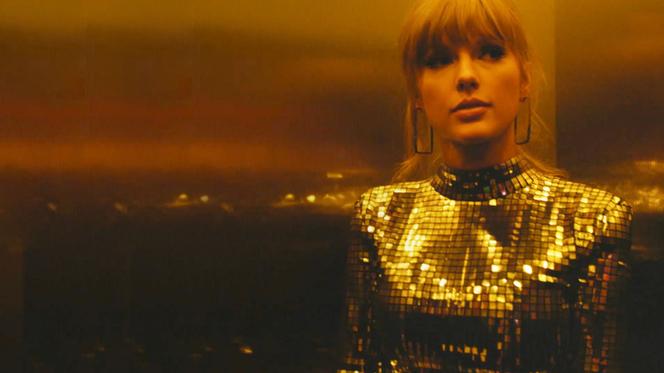


NETFLIX - ON DEMAND - DOCUMENTARY
Is Taylor Swift a socially conscious singer? As her "Eras Tour" stops in Paris on May 9, 10, 11, and 12, Lana Wilson's 2020 documentary Miss Americana deserves a watch. Not so much for the fiendishly flattering nature of the movie, but for the pivotal moments in the star's awareness of the world around her.
The young woman, born in 1989, who succeeds in everything – in 2023, she topped the world's artists' rankings for the fourth time – recounts how she felt compelled to be "the person everyone wanted [her] to be." "A nice girl doesn't force their opinions on people; a nice girl smiles and waves and says thank you; a nice girl doesn't make people feel uncomfortable with her views," she says in the documentary's trailer.
The first incident that upsets her flawless trajectory happened during the taping of the MTV Video Music Awards, in 2009. As she was thanking the crowd after receiving the award for "Best Video for a Female Artist," Kanye West sprang up from his front-row seat, rushed to the stage, and snatched the microphone out of her hand. "Yo, Taylor, I’m really happy for you, I’mma let you finish," he said. "But Beyoncé had one of the best videos of all time! One of the best videos of all time!"
This was the start of a long-running feud with the rapper – who is also controversial for his anti-Semitic stances. When, in 2016, he sang "I feel like me and Taylor might still have sex / Why? I made that bitch famous," she once again quietly took the blow. But she preferred to disappear from the radars for a year.
Strongly supported by her mother, Taylor Swift worked hard and made a name for herself in the music industry. A traumatic event was to alter her course. In 2013, the American singer with a model-like figure was assaulted by an ex-radio DJ who put his hand up her skirt. After being fired, he sued her.
Swift recants the harsh messaging she received throughout the court case as the trial went in Denver (Colorado), back in 2017. "Why didn't you scream? Why didn't you react quicker? Why didn't you stand further away from him?" Seven witnesses and a photo proved her innocence. "You don't feel any sense of victory when you win, because the process is so dehumanizing," she lamented on camera. Since then, the young woman has championed the cause of all victims of sexual assault.
Taylor Swift realizes then that her voice extends beyond her music and finally allows herself to speak loudly about what she believes. "I need to be on the right side of history," she asserts, deciding during the 2018 midterm elections to openly oppose Marsha Blackburn, the Republican candidate from Tennessee (where the singer lives and votes). Blackburn wants to challenge the Violence Against Women Act of 1994, which "protects us from abuse and harassment," the artist protests.
Her inner circle urges her not to directly confront Donald Trump, then President of the United States. She resists them, stating in the media: "If I get bad press for saying, 'Don't put a homophobic racist in office,' then I get bad press for that, I really don't care." At 28, the pop star supported Democrat Phil Bredesen in the Senate elections. But her endorsement proved insufficient, and Marsha Blackburn won the election.
Undeterred, Taylor Swift's political awakening remains with her: She encourages her 112 million followers to vote. Today, the "Miss Americana" – named after the musical wave originating from country music, where she started – supports the Democratic camp more than ever, to the point of seriously worrying Donald Trump's supporters.
Miss Americana, documentary by Lana Wilson (EU, 2020, 85 min).
Translation of an original article published in French on lemonde.fr; the publisher may only be liable for the French version.
